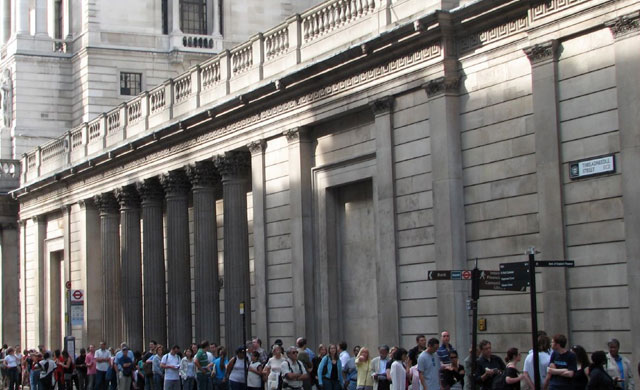LEARN FROM GENERALS OF THE MARKETS – PART 12

George Soros, born in August 12, 1930, is one of the wealthiest and one of the most successful traders in his generation. He’s the chairman of Soros Fund Management and a notable humanitarian. He’s given away about eight billion dollars for humanitarian purposes. Earlier this year, an apex magazine ranked him as the twenty-second wealthiest individual on earth – the seventh wealthiest American. He’s an estimated fortune of twenty billion dollars.
Why is George Soros called, “the man who broke the Bank of England?” How did he do it? In September 16, 1992, he shorted ten billion pounds as the British government either dithered over an interest rate hike or failed to float the pound. The British government’s action resulted in a devaluation of the pound, thus enabling George to realize a gain of one billion pounds. This happened on Wednesday of that month (the notorious Black Wednesday).
Lesson
We can learn some lessons from George Soros. Here are some of them:
A. George has successful trading strategies that have made him victorious for about two decades. He made around thirty per cent profits per annum (sometimes gaining more than that per annum). On the contrary, most newbies believe that the real issue is in making hundreds of percentage per month. Even the best traders in the world don’t double their accounts always. A skilled fund manager may make ten, fifteen, twenty, twenty-five, thirty, thirty-five per cent or whatever (or more or less) per year. If someone makes an annual profit of fifty per cent on his one thousand dollar account, no-one would take him serious. But if a giant hedge fund manager makes twenty-five per cent profits per annum on a twenty billion dollar account, he’ll be celebrated throughout the world. Most traders would put an exceedingly small amount of money in their trading accounts and expect to live a luxurious life out of that. No wonder many end up getting frustrated.
B. George wasn’t always right. He was right less than half of the time, yet he enjoyed permanent success as a market speculator. He experienced a successful career (retiring in 2000). He himself said that it’s not whether you’re right or wrong that’s important, but how much money you make when you’re right and how much you lose when you’re wrong. Despite the perpetual unpredictability in the markets, there are winning trading styles and strategies that can ensure that one continues to be victorious in the markets. Loss trades and uncertainty aren’t a threat to our trading career unless we allow them to be a threat.
C. George is very rich and fulfilled because he managed other people’s money successfully. There are highly skilled and victorious funds managers who manage money for rich individuals. These victorious funds managers have good long-term track records. If you can manage your own account successfully for some years, you may be able to do so for others. So try to find winning trading strategies that also guarantee the safety of portfolios.
This article is concluded with a quote from George:
“Markets are constantly in a state of uncertainty and flux and money is made by discounting the obvious and betting on the unexpected… Markets are designed to allow individuals to look after their private needs and to pursue profit. It’s really a great invention and I wouldn’t under-estimate the value of that, but they’re not designed to take care of social needs.”

 Hot Features
Hot Features














Go ahead print some more money; I’ll burn it to heat my home when I cant pay my heat bill. I bought some land and I’m learning to grow my own food. Hope the rest of you are ready to do the same…….